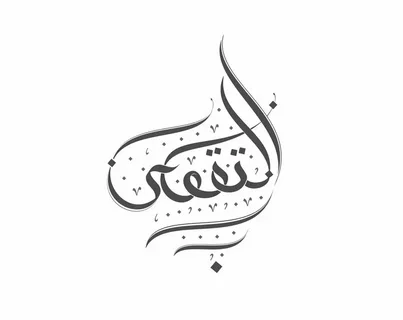Taqwa meaning, a term deeply rooted in Islamic teachings, holds profound significance in guiding individuals towards a righteous path. In this exploration on Arabian Tongue website, we delve into the multifaceted dimensions of Taqwa, its practical application in daily life, and its transformative impact on character and well-being.
Taqwa meaning

Taqwa, often translated as “piety” or “consciousness of God,” goes beyond a mere superficial understanding. It encompasses a heightened awareness of one’s actions, intentions, and the constant mindfulness of God’s presence.
Significance in Islam
Considered a cornerstone of Islamic ethics, Taqwa is regarded as a shield against wrongdoing and a catalyst for spiritual growth. It plays a pivotal role in shaping the character of an individual and fostering a harmonious society.
Recommend: Islamic Quotes Patience
Understanding the Concept
The linguistic roots of Taqwa lie in the Arabic word “wiqaya,” denoting protection and caution. This sheds light on its essence, emphasizing a safeguarding mechanism against moral and spiritual pitfalls.
- Spiritual Dimension: Taqwa involves a profound connection with the divine, transcending ritualistic practices. It urges believers to cultivate a deep consciousness of God in every aspect of life, fostering a sense of accountability.
- Practical Application: Far from being an abstract concept, Taqwa finds expression in tangible actions. It guides believers in making ethical choices, upholding justice, and exemplifying compassion and empathy.
Taqwa in Daily Life
- Personal Conduct: Taqwa influences personal conduct by promoting honesty, humility, and integrity. It serves as a moral compass, steering individuals away from deceit and selfish pursuits.
- Social Interactions: In the realm of social interactions, Taqwa encourages respect, tolerance, and kindness. It emphasizes the importance of harmonious relationships within families, communities, and the broader society.
- Moral and Ethical Values: At its core, Taqwa instills a set of moral and ethical values. It guides individuals to uphold principles of justice, fairness, and compassion in their interactions with others.
Read more: How many pages of the Quran
Verses Emphasizing Taqwa

Taqwa, often translated as “piety” or “consciousness of God,” is a central concept in Islamic teachings. It encourages believers to be mindful of Allah in their thoughts, actions, and decisions. Several verses in the Quran emphasize the importance of taqwa. Here are a few:
- Surah Al-Baqarah (2:197):“And take provisions, but indeed, the best provision is Taqwa. So fear Me, O you of understanding.”
- Surah Al-Hujurat (49:13):“O mankind, indeed We have created you from male and female and made you peoples and tribes that you may know one another. Indeed, the most noble of you in the sight of Allah is the most righteous (muttaqi) of you. Indeed, Allah is Knowing and Acquainted.”
- Surah Al-Imran (3:102):“O you who have believed, fear Allah as He should be feared and do not die except as Muslims [in submission to Him].”
- Surah Al-Hashr (59:18-19):“O you who have believed, fear Allah. And let every soul look to what it has put forth for tomorrow – and fear Allah. Indeed, Allah is Acquainted with what you do. And be not like those who forgot Allah, so He made them forget themselves. Those are the defiantly disobedient.”
- Surah Al-Ma’idah (5:8):“O you who have believed, be persistently standing firm in justice, witnesses for Allah, even if it be against yourselves or parents and relatives. Whether one is rich or poor, Allah is more worthy of both. So follow not [personal] inclination, lest you not be just. And if you distort [your testimony] or refuse [to give it], indeed Allah is ever, with what you do, Acquainted.”
These verses highlight the significance of taqwa in various aspects of life, including personal conduct, justice, and interactions with others. Believers are encouraged to cultivate a deep sense of God-consciousness in all their affairs, recognizing that it leads to righteousness and a higher moral standing.
Developing Taqwa
Spiritual Practices
Prayer, fasting, and acts of charity are integral to the development of Taqwa. These practices cultivate a heightened awareness of God and nurture a strong spiritual foundation.
Reflection and Self-awareness
Taqwa thrives in an environment of self-reflection. Individuals are encouraged to assess their actions, acknowledge shortcomings, and strive for continuous self-improvement.
Seeking Knowledge
Knowledge is a key driver in the journey towards Taqwa. Understanding the teachings of Islam and gaining insights from various sources contribute to a well-rounded spiritual perspective.
Read about: Islamic Quotes
Taqwa and Character Building
- Patience and Gratitude: Taqwa instills virtues such as patience and gratitude. It encourages individuals to navigate challenges with resilience and express gratitude for life’s blessings.
- Compassion and Empathy: The concept of Taqwa fosters empathy towards others. It urges believers to understand and share the joys and sorrows of fellow human beings, contributing to a compassionate society.
- Humility and Modesty: Taqwa emphasizes humility as a cornerstone of character. By recognizing one’s strengths and weaknesses, individuals develop a modest demeanor, free from arrogance.
The importance of taqwa in difficult days
Taqwa, or consciousness of God, holds immense importance in Islam, especially during challenging times. In difficult days, the concept of taqwa becomes a source of strength, guidance, and resilience. Here are some reasons why taqwa is crucial during tough times:
- Patience and Perseverance: Taqwa helps individuals remain patient and persevere in the face of adversity. Believers are reminded to trust in Allah’s wisdom and to endure difficulties with fortitude, knowing that their actions are guided by a higher purpose.
- Seeking Allah’s Help: Difficult days often lead individuals to turn to Allah for assistance. Taqwa encourages believers to seek refuge in Allah, to turn to Him in prayer, and to trust in His mercy and guidance during challenging times.
- Maintaining Morality and Ethics: Taqwa serves as a moral compass, guiding individuals to uphold ethical values even in difficult situations. It reminds believers to act with integrity, kindness, and justice, regardless of the circumstances they face.
- Gratitude and Contentment: In times of difficulty, taqwa prompts believers to reflect on their blessings and express gratitude for what they have. It instills contentment with Allah’s decree and fosters a sense of thankfulness even amid trials.
- Forgiveness and Compassion: Taqwa encourages forgiveness and compassion, even when facing hardships caused by others. Believers are reminded to emulate the merciful qualities of Allah and to forgive those who may have wronged them.
- Strengthening Faith: Difficult days can test one’s faith, but taqwa acts as a shield against doubts and despair. It reinforces the belief that Allah is the ultimate source of strength, and relying on Him helps believers navigate challenges with faith and trust.
- Preparing for the Hereafter: Taqwa motivates believers to view difficulties in the context of the Hereafter. It reminds them that this life is temporary, and the ultimate success lies in the afterlife. This perspective helps individuals maintain a sense of purpose and hope during tough times.
- Reflecting on Actions: In challenging moments, taqwa encourages self-reflection. Believers are urged to assess their actions, seek forgiveness for any shortcomings, and strive for self-improvement. It is an opportunity for spiritual growth and development.
Learn Now: Quran Recitation online Course For Kids
FAQs
What distinguishes Taqwa from mere fear of God?
Taqwa goes beyond fear, embodying a profound love and reverence for God. It involves conscious mindfulness, ethical living, and a sincere connection with the divine.
How can one overcome challenges in cultivating Taqwa?
Overcoming challenges in cultivating Taqwa requires perseverance, community support, and a commitment to spiritual practices. It's a journey of self-reflection and continuous improvement.
Is Taqwa relevant in the modern, fast-paced world?
Absolutely. Taqwa's principles provide a moral compass for navigating the complexities of the modern world, addressing issues like technology, environmental responsibility, and social justice.
Can non-Muslims benefit from understanding Taqwa?
Yes, Taqwa's universal values resonate across cultures and religions. Understanding its principles can contribute to ethical living, fostering harmony and understanding among diverse communities.
How can individuals contribute to spreading awareness about Taqwa?
Individuals can contribute by incorporating Taqwa into their daily lives, engaging in conversations, and participating in educational and outreach initiatives. Social media can also be a powerful tool for spreading awareness.
Conclusion
In concluding this exploration of Taqwa, it is essential to recap key points. From its definition to practical application, Taqwa emerges as a guiding force for a purposeful and ethical life.
Readers are encouraged to embark on their Taqwa journey. In doing so, they contribute not only to their spiritual well-being but also to the betterment of the communities they inhabit.


